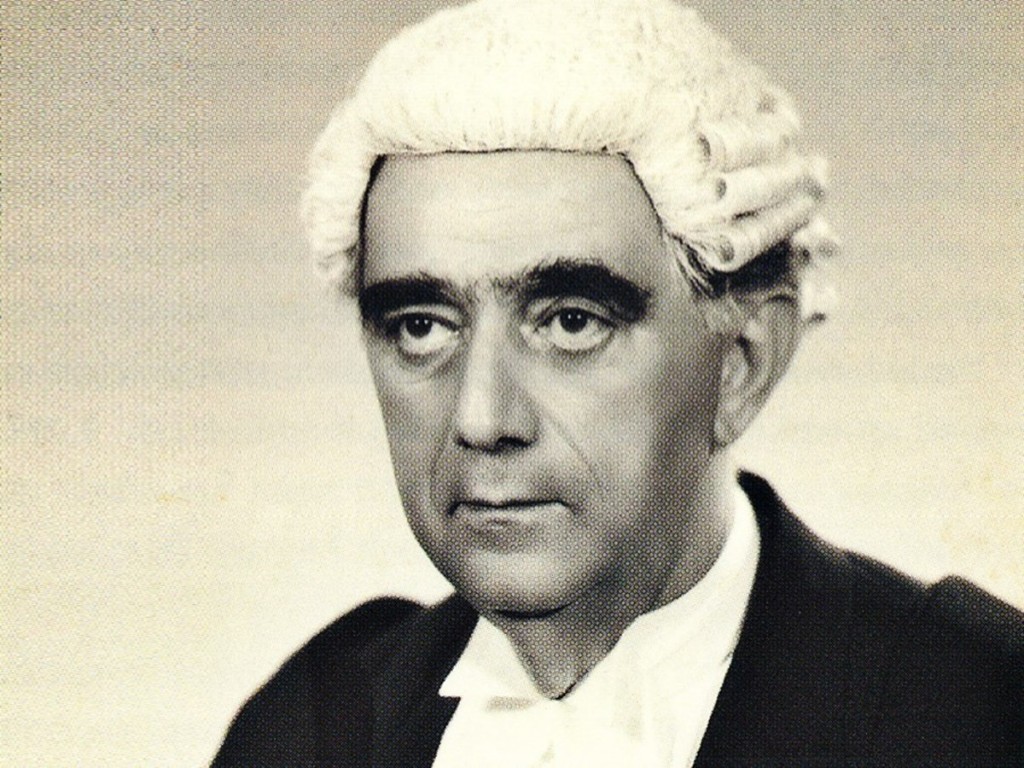Singapore's first prime minister: Who is David Saul Marshall?
David Saul Marshall, Singapore's first prime minister and today considered one of its founders, was originally from Baghdadi Jews in India.

David Saul Marshall, Singapore's first prime minister and today considered one of its founders, was born in Singapore on March 12, 1908.
Originally from Baghdadi Jews in India, David Marshall was closely interested in politics and the independence movement at an early age. Baghdadi Jews are Jews whose roots are in Iraqi Jews and who immigrated to India during the periods under British control. Although the Marshall family was also from this community, they later settled in Singapore. Born in Singapore, David Marshall completed his high school education in Singapore and then went to England for university and studied law at the University of London.
David Saul Marshall (March 1908 – 12 December 1995), born David Saul Mashal, was a Singaporean barrister and statesman who served as the inaugural Chief Minister of Singapore from 1955 to 1956. He resigned after just over a year at the helm after his delegation to London regarding negotiations for complete home rule and eventual independence of Singapore was initially rejected by the British. However, Marshall was nevertheless instrumental in forging the idea of sovereignty as well as in subsequent negotiations that led to its eventual self-governance from the United Kingdom in 1959.
After completing his education and being admitted to the Bar in 1937, he returned to Singapore and became one of Singapore's top criminal lawyers. At that time, Singapore law used the jury system, and Marshall was such a good orator that he managed to end 99 of the 100 murder cases he defended with acquittals.
Invincible Marshall
Marshall became known as the "Invincible Marshall" in Singapore legal circles. When his political rival Li Kuan Yew abolished the jury system, he explained the distortion of the system with this incredible statistic of Marshall. Marshall, who joined the Singapore volunteer forces during World War II, was captured by the Japanese after the fall of Singapore. He managed to survive in 26 different labor camps, including coal mines in Japan and was released in 1945.
When the left-leaning labor front, one of Singapore's two largest parties led by Marshall, narrowly won the elections in 1955, Marshall formed a minority government and became Singapore's first prime minister. The Marshall government, which sent a delegation to England and held talks for independence in April 1956, was met with excuses from the British about the threat of labor movements and communism. After the talks failed, David Marshall resigned and was replaced by his rival Lim Yew Hock. Marshall, who went to China after his resignation, met with the Chinese government and ensured that 400 Russian Jews, who were not allowed to leave the country, were allowed to leave.
Returning to law in 1963, Marshall was actively involved in politics until 1972. David Marshall, who served as Singapore Ambassador to France, Portugal, Spain, and Switzerland from 1978 to 1993, retired in 1993. He died on December 12, 1995, at the age of 87.
The people of Singapore showed their gratitude to Marshall by naming the conference hall at the law faculty of the University of Singapore after him and by building his bust in front of it.
